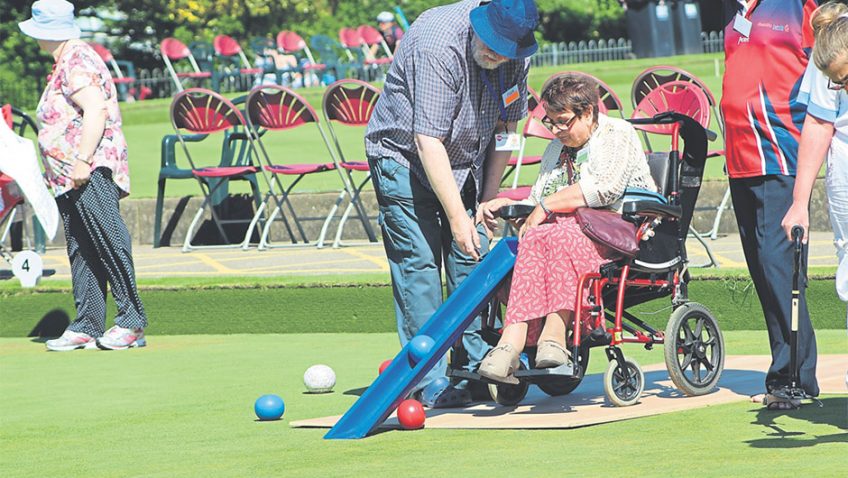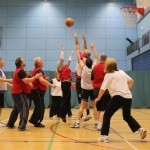The UK population is ageing rapidly and by 2024 an estimated 50% will be over the age of 50. Data shows that more than 15.4 million people in England have a longstanding illness and this is set to rise, with many of the illnesses linked to lifestyle and ageing.
Older people are characterised as having an increased risk and incidence of coronary heart disease, stroke, type 2 diabetes, cancer, obesity and a greater risk of falls. Retaining physical and cognitive function becomes more of a challenge as we age, as is the avoidance of debilitating mental illness such as dementia and depression.
Older adults want to stay healthy and fit enough to do those things that are important to them: stay pain free, maintain capacity to get out and about and retain their independence. Staying engaged with their community and making a useful contribution to family life, friends and society in general is important to many.
This is where bowls can help. As well as providing the opportunity for regular exercise and social interaction, bowls can assist with developing cardio-respiratory fitness, improve balance, co-ordination and muscle strength, and help lift mood, addressing many potential health and wellbeing issues.
The Bowls Development Alliance is an “umbrella” organisation for the sport and works in partnership with Bowls England (outdoor) and the English Indoor Bowling Association (indoor) to encourage more people to play the sport, and stay in the sport, thus remaining active and well into later life.
There are currently just under 200,000 people playing flat green bowls. Participants play within a club environment, of which there are currently 2,503 affiliated clubs, with 294 providing the indoor option. The sport predominantly attracts older people, and data shows that 92.5% of those participating are over 55 years old. More men than women currently play, although the new “Women Can” campaign, launching this month will see a drive to encourage more women to play the sport, to coach and to volunteer.
As well as playing in league competitions, many club members enjoy a weekly roll up with friends, and many clubs have social activities that can cater for the non-bowler. The game is very inclusive and there are many opportunities for those with a range of impairments to take part. Most clubs have greens that are accessible by those with mobility issues and can provide appropriate changing facilities. Whatever your ability, you are always assured of a warm welcome.
Clubs are supported through the Bowls Development Alliance Play Bowls Package Scheme, aimed at supporting clubs to increase their membership. Activities include running an Open Day followed by 4-6 FUN weekly sessions, which allows potential bowlers to have a go before making a final decision to join the club.
Despite the obvious benefits of playing bowls, there are some concerns for the future of the sport. Facilities are being put at risk of closure, with many local authorities looking at closing their bowls clubs as a way of saving money. This threat affects outdoor clubs based in local parks and especially those clubs situated within leisure centres.
Some local authorities are looking to transfer clubs’ assets to the bowls clubs themselves, who are then expected to find the money to fund all the running costs, including the cost of maintaining the greens as well as looking after ageing club houses.
With the government keen to keep the nation active for longer, it is vital that clubs remain open.
If you would like more information and details of club locations or if you are considering taking up bowls, have a look at the following websites:
www.playbowls.org
Call: 01664 777001
www.bowlsengland.com (outdoor)
Call: 01926 334609
www.eiba.co.uk (indoor)
Call: 01664 481900





